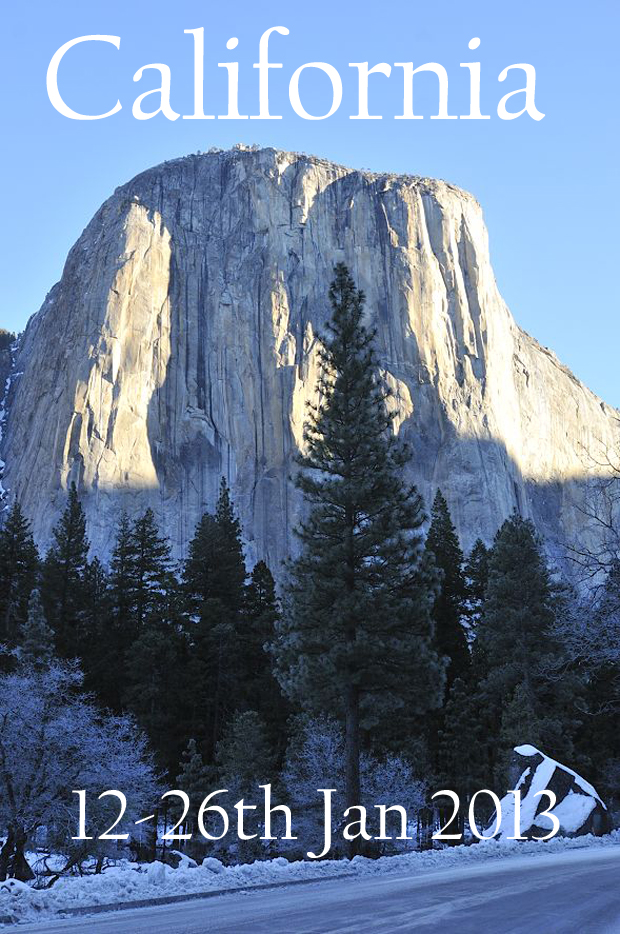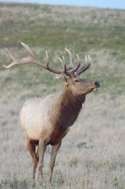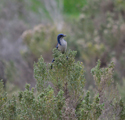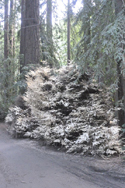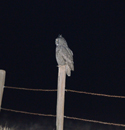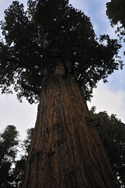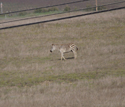|
|
||||||||||||||||||||||||||||||||||||||||||||||||||||||||||||||||||||||||||||||||||||||||||||||||||||||||||||||||||||||||||||||||||||||||||||||||||||||||||||||||||||||||||||||||||||||||||||||||||||||||||||||||||||||||||||||||||||||||
|
Introduction.
With the wife going to San Francisco for weeks work it was an ideal opportunity to visit Northern California cheaply, while good for wintering birds, January is not the best time for mammals and of course some of the amazing scenic places to visit both natural and man made. Thanks to all who helped with information particularly from birdforum.net and mammalwatching.com.
Saturday 12th January
After picking up our hire car - why do they remove the parcel shelves! - I expressed my views to the hire company in vain. We headed off to Sutro baths where a confiding river otter had been showing in the last couple of weeks, being a weekend the place was packed and there was no sign of the otter but there were a few common birds around. As the light fell we headed to Napa for our first night.
Sunday 13th January
I left the wife here as she was working for the first week and I headed east to Woodbridge ecological reserve home to a large roost of sandhill cranes, they leave the reserve at dawn and I was never going to make that so on my mid morning arrival there were only a couple of hundred or so about. A nice white tailed kite and a loggerhead shrike hunting the kinglets were of note. Next stop was some random fields west of Davis about 1 hour north, I quickly located my first new bird species yellow billed magpie followed by my first new mammal California ground squirrel. Next stop was Colusa wetlands where an excellent selection of ducks was on offer and large numbers of both snow and Ross's geese. The Sacremento wetlands was my next stop and it contained similar species to the last stop but also held bald eagles and a selection of common wader species. The highlight was a massive flock of redwinged and tricolored blackbirds. A tip off led me short way down the road where large numbers of tundra swans were present. Time to head west as dusk fell the only sighting of note were some mule deer in a car park and a couple of wild turkeys.
Monday 14th January
Dawn in a misty murky Humbolts and Redwood state park where I spent most of the morning exploring the giant redwoods and some of the tourist attractions in the area. Birding was quite tough but a few varied thrushes brightened things up. A western gray squirrel the only mammal of note and under a small log a black salamander was found. The afternoon was more productive with the drive down the coast to Arena, a good selection of gulls including a thayers were on a beach and good species such as acorn woodpecker were found in the woods. I arrived at Arena to look for the Laysan albatross which has been semi resident for the last few winters, but not today and it did not show during my visit. About 8 gray whales were present on the edge of the harbour which I watched till dusk. The long drive across California to the Sierra Nevada mountains near was not as productive as hoped but I did see a pygmy owl. The route was tough going and there was quite a bit of snow and ice on the roads and there were a few dodgy moments.
Tuesday 15th January
It was incredibly cold (-25° C) and snowy as I arrived in Ridgecrest and my nerve broke, I visited a shop and bought some snow chains ($35). A sharp shinned hawk was hunting the small birds in the car park but little else was braving the cold a theme of the day. I headed to Mono lake which was in a sea of cloud. But as I reached the southern Tufa area the cloud had lifted, it was quite an impressive lake and the tufa very interesting I visited a few sites but saw little the weather was too cold and the snow too deep for most. I drove into an area for wild horses but despite an extended search came up with nothing so headed up a snow covered road high into the mountains. About halfway up I parked and started to walk, well I was puffed and struggled with the climb, now I am not the fittest but I do lots of hill walking but realised that at almost 10,000 feet high the altitude was hindering my progress somewhat. Here I had a little success finding a white tailed jackrabbit but nothing else, so after some food I headed back to mono lake for the stunning sunset over the lake and surrounding mountains.
Wednesday 16th January
It was a bit of a drive from Ridgecrest to Yosemite as all the high passes were closed, but finally some night driving paid off, a striped skunk was a long awaited tick and I had to employ evasive manoeuvres to avoid both mountain cottontail and black tailed jackrabbit, both gray fox, coyote and a barn owl were also seen. Upon entering Yosemite I had a managed a couple of hours sleep before driving round the park in search of mammals, it was only a few minutes before the unmistakable shape of a flying squirrel caught my attention and my realisation that the road was not tarmac but ice as I tried to stop and spotlight it. With the squirrel long gone I continued for a few hours with nothing at all, I found a campsite to use the toilet facilities and spotlighted the grounds, a great grey owl was watching me and before I could go to the car where the camera was lurking it flew off over the river. I would return in daylight to see if I could find it roosting. The rest of the night drive had nothing. Dawn came and although spectacular scenery wise with some nice photo opportunities it gave nothing but a few ravens. I headed to the visitors centre and had a walk round, a few small birds were about as was an elusive western gray squirrel. Some stellers jays and a cracking stag mule deer were very photogenic and I spent some time with them before moving on as the public started to arrive. I then did some searching of the park exploring by car and heading a little way from the parking on foot but only really found common stuff seen before. Time to head back to the camp site, a cracking coyote walking down the now quickly thawing road was excellent. I searched the campsite for the owl without success but did get a coopers hawk and Douglas squirrel, some noisy morons came and flushed both which annoyed me somewhat and I made my annoyance know. I headed back to the viewpoints in anticipation of the sunset and found three coyotes along the way, a cracking sunset and then I headed off for some food realising that it was almost 24 hours since my last meal. The drive to San Francisco was largely uneventful as it was freeway for most of it, I drove over the Golden Gate Bridge and pulled into the viewpoint, a racoon scampered across the car park as I pulled in. Despite being midnight there were a few people around and I was weary at first but the dodgy looking people in blankets looking like hobo's were actually photographers with rather smart cameras keeping warm and when a family pulled in and wandered about the children fascinated with the bin diving racoons I was much more at ease walking round with an expensive camera. I took the obligatory bridge and racoon photos before heading on. Not far from my destination I found a striped skunk walking down a side road, however I fumbled with the camera, it was turned off etc. and missed the shot, and I saw no more skunks on the trip.
Thursday 17th January
I awoke to another glorious sunrise, I was at the Tule elk reserve at Point Reyes National Seashore and there were plenty of Tule elk about, I headed to the lighthouse. On the sea were all three scoters, a common mure colony on the rocks and a selection of cormorants. The next stop was the elephant seal colony with several mule deer subspecies seen along the way. The elephant seals were very noisy and putting on a display which was excellent. I was the first to Drakes beach and had some nice sanderling and a glance at the sea had me watching a pod of harbour porpoise. I took a good drive round taking severalof the side tracks and caught up with plenty of the commoner species such as spotted towhee and kildeer. Olema marsh held some cinnamon teal and five brooks had California quail. The road to Limantour beach only produced a red breasted sapsucker and the beach was full of schoolchildren so I left quickly. The last couple of hours before dusk were used to drive most of the park in search of bobcat but I had no luck with that but did see a fallow deer on the Limantour road, yes an introduced population still persists here but is slowly declining. A starling murmuration was very impressive as were some large Tule elk stags. I did some night driving but could only find a deermouse so I headed for food and then to the Tennessee valley area and found a suitable area outside the park limits to put some Sherman traps down, the only wildlife about was a passing coyote.
Friday 18th January
I checked the traps but no luck so headed down to the park and even at first light it was busy, my target here was bobcat, this site is one of the best places to see them in the US. The plan simple walk all the trails all day and bump into a bobcat. I wandered the trail down to the coast taking some of the side trails a little way as well and found a few wrentits and plenty of other common birds and a shrew mole diving into the grass. I took the low trail back from the beach and where it joined the main path I saw a Californian towhee which I tried to photograph, a passing jogger told me they had just seen a bobcat 250 yards back up the main trail (if I had taken that trail I would have seen it). I rushed back to the spot but it had gone and despite hanging around for 45 mins there was no sign damm! I wandered round a little more but then decided to take a drive and get some food, a quick sandwich and I drove up Mount Tamalpais which had fantastic scenic views and a few acorn woodpeckersstashing acorns in their granary but little else. I dropped down into Bolinas and drove along the side of the lagoon which was full of waders and ducks of dozens of species along with a few belted kingfishers. Rejuvenated I headed back to the Tennessee valley for another crack at the bobcat. In the car park someone came up to me and told me they had seen a bobcat about an hour ago, the park was very busy but not far from the mornings sighting two ladies were pointing into the scrub below the path and they beckoned me over where about 12 feet away was a bobcat hiding in the brush. It moved into a better position with its head poking out and it sat for a while just its head showing. It then began hunting and moved off into deep scrub and could hardly be seen. I waited until dusk it stayed just about visible and did not venture out during that time. I got some food and headed back to Napa to meet the wife.
Saturday 19th January
We were up early for a day in San Francisco, first stop was the Golden Gate bridge. While we explored the tourist sites we managed to visit Telegraph hill for the famous parrots and then the harbour for the California sealions and some Heerman's gulls.
Sunday 20th January
Another early start and we were one of the first people at Sutro baths for another go at the river otter, but there was no sign of him but some nice surfbirds and black turnstones were present. After a couple of hours we gave up and headed south picking up the coast road and finished at Moss Landing, what a top place. There were waders everywhere of a dozen species and plenty of ducks and grebes. I found a local birdwatcher who was very helpful and had some local sites for some interesting species. But first we went to the other end of the landing where the sealions and sea otters were both showing very well along with loads of jellyfish. So onto the first recommended site which was a field containing some snow geese and a cackling Canada goose. Next stop was a farm which welcomed birders and was home to a burrowing owl, but it was asleep somewhere, however the California ground squirrels were not. We had a walk around Elkhorn slough which was badly timed and a bit of a let down, Moss Landing was far superior, but we found a few bits and pieces during our walk around including a few lizards. The burrowing owl was present on our return to the farm and we headed to our final recommended stop in seaside, in a town park along a small stream was an American dipper far from its usual habitat. A large bat sp was also present.
Monday 21st January
We stopped at a lake in Monterey for a black crowned nigh heron and then onto the harbour to search for the Artic Loon that had been present for a week or so and we only saw it distantly but other birders had it close in a little earlier. We had a whale watching trip booked and checked in and to my horror a group of school children were also booking in but they had their own charter boat. We were off and had two fulmars as we left the harbour and were quickly heading towards two close gray whales but after a glimpse we had changed course for some distant dolphins. We were quickly watching a pod of Risso's dolphins and it was a Risso's day as we saw three further pods during the trip. Time for gray whales? No, a large fin had been seen and when we arrived at the spot a lone male killer whale was showing very well. We did finally catch up with about a dozen gray whales showing very well. Back at the harbour for an ice cream and then a quick look for the Artic loon, which was now much closer. We were on a schedule so were off to the Big Sur in search of California condors, first stop was to see an albino redwood tree a ghostly sight and much rarer than condors. However next stop we did have a condor very distantly and I was not fully satisfied with the view so we continued our search for a better one in vain, but I did find a nice spot for trapping and put down my traps. Next stop just as dusk started to fall was Andrew Molena park, where several brush rabbits were present. But we were here for bats and there were plenty about we only knew of two common species that were here western pipistrelle which were easy to find and Yuma myotis flying over the river, but there were two other species I could determine on the detector but who's identity remains a mystery, so we headed back to our base in Monterey.
Tueaday 22nd January
We took the scenic 17 mile drive but it had been largely ruined by golf courses, we did see a few monarch butterflies but could not find any of the large groups. A fox squirrel was a little unexpected but they have been introduced into the area. Next stop was the traps, only one was tripped but it was very heavy, a quick peak confirmed it was a rodent but it was not coming out and when it did come out it was not going in the bag but went under the car and I managed a couple of photos before the desert woodrat was off. A stop was made where we had the condor the previous afternoon and indeed there were two soaring in a thermal but still a way off. A few miles away a layby held two birders, after a quick conversation we were watching a perched California condor – very nice, but then one flew over very low, then another and more with 5 flying around passing quite low, the perched one stayed put during all the excitement and I was very pleased with the experience. The next stop along the coast was to see the Northern elephant seals at the famous Piedres Blancas site, hundreds were present and it was a great sight and there were plenty of Californian ground squirrels as well. Onwards a short drive to see the Burchell's zebras at Hearst Castle a very strange sight indeed. We then drove to Carizo plain a few yellowed billed magpies on the way. We went straight to the painted rock to see the 2000 year old rock paintings, a few coyote and a Nelsons ground squirrel on the way. There were a few bats flying round but we could not ID them. Back to the car for a serious night drive. We quickly found giant kangaroo rats and a kit fox but a little distant, near the visitor centre. We headed north for a bit but had no luck, but back at the visitor's centre a kit fox was seen again. We headed to the campsite seeing some smaller kangaroo rats along the way and two burrowing owls. The campsite was occupied so we did not linger and headed south off the tarmac. Here things really hotted up we had loads of kangaroo rats of several different sizes and a couple more sightings of kit fox, a few coyotes and two badgers - very nice. We had a great close kit fox but once again the camera was not ready and I missed the opportunity and another was missed as it was on the other side of the car, but with at least 6 kit fox sightings we were happy and we bumped into a great horned owl as well to finish things off.
Wednesday 23rd January
We arrived in Ventura tired and hungry so after a few hours sleep we got some breakfast and headed to the harbour for our trip to the Channel islands. I checked in and was told sea conditions were very calm but the weather would be largely overcast. The boat was only half full and only a handful were going to Santa Cruz island the rest were whale watchers staying on the boat, we were still in the harbour before we encountered our first mammal of the day harbour seal followed by California sea lions and bottle nosed dolphins as we left the harbour. A few black vented shearwaters were encountered along with some auks and gulls, then we encountered a megapod of long beaked common dolphins which was spectacular the water was literally alive with them totally awesome. We docked at Santa Cruz and got off, the naturalist gave us a briefing etc. but he did tell us the scrub jays are very hard to find on this part of the island. Due to another commitment we could only make this day to visit the island and the only landing was at Scorpion's Harbour which is not favoured for the scrub 'ay. But I had done my homework and had a fairly good site for them, I hoped. We started off and quickly come across a few of the endemic sub species Rufus crowned sparrow and Bewick's wrens, and as we headed up into Scorpion canyon just out of far campsite we had a loggerhead shrike. I heard the unmistakable call of an island scrub jay and a few minutes later we had it and it showed for about 30 mins. We wandered back to the campsite for a drink and sit down and behind us on the hill was our other target an Island fox hunting on the hillside and it caught a deermouse while we watched. Both targets within an hour and a half we were free to explore and found the Allen's hummingbird sub species and another scrub jay between the campsites. We even directed some Canadian birders to the area and they located two between the campsites. Back on the boat we should have gone straight back to Ventura but the afternoon whale watching trip had not seen any whales and some gray whales were showing in the distance so we headed for them and had best part of an hour watching them and even encountered a few short beaked common dolphins on the return to harbour. Totally exhausted it was food and bed.
Thursday 24th January
The day stared with torrential rain as we joined the rush hour traffic into Los Angeles for a touristy day and to meet some of my wife's friends in Santa Clarita, but it cleared up as we stepped out of the car and we added a couple of nice bird sightings during our day, some noisy yellow chevroned parakeets were easy to locate and we picked up a small warbler flock with both Townsend's , black throated gray, orange crowned and a common yellowthroat.
Friday 25th January
An early start for a big day and we drove round Frazier park area picking up some lark sparrows and a park pond full of dodgy wildfowl, but little else of interest so headed for the Mojave desert where it was raining so we could not locate any white tailed antelope ground squirrels anywhere but had several flocks of horned larks. The poor weather probably accounting for the absence of much wildlife, it was a short drive to Jawbone canyon where a western mastiff bat had been roosting for the last few weeks, it was quickly located but did not look very healthy, staff insisted it was still alive but if so it was only just and its death surely imminent. We left as we had a long drive to Sequoia and Kings Canyon National Parks. The drive into the park was in rain and mist suddenly improved as we climbed above the clouds and had some amazing views in bright sunshine. We were also rewarded with a golden eagle sighting as we headed into the snow line and we arrived at the General Sherman tree the world's largest (by mass) tree one of the many huge giant sequoias present in the area. The scenery was amazing and well worth the visit despite the lack of wildlife and we headed to Fresno for the night.
Saturday 26th January
The last day and by mid morning we were close to the airport at Palo Alto wetlands which had an excellent selection of water birds and gulls, it was quite breezy but sunny and warm and pleasant to walk around but there was no sign of any clapper rails. We added a few birds to the trip list but nothing of great note, but we did get some great views and photos of some of the commoner species before starting the long trek home after a very successful trip, and the first US trip with no run ins with the local law enforcement agencies for quite some time.
Misses / disappointments - Laysan Albatross, chipmunks of any species, white tailed antelope ground squirrel, clapper rail , bittern and poor weather for small mammal trapping.
Highlights - Bobcat, killer whale, Californian condor, island fox, island scrub jay, goose spectacular, blackbird spectacular dolphin megapod.
Birds 176 Red Throated Loon Pacific Loon Arctic Loon Common Loon Horned Grebe Eared Grebe Pied Billed grebe Western Grebe Clark's
Grebe Northern
Fulmar Sooty Shearwater Black
Vented Shearwater Brown
Pelican Brandt's Cormorant Pelagic
Cormorant Double
crested Cormorant Great Blue Heron Great
Egret Snowy
Egret Black Crowned Night Heron White
Faced Ibis Tundra
Swan Greater White-fronted Goose Ross's
Goose Snow
Goose Canada Goose Cackling
Canada Goose Brant Mallard Pintail American
Wigeon Gadwall Northern
Shoveler Cinnamon
Teal Green Winged Teal Lesser Scaup Ring
Necked Duck Greater Scaup Canvasback Surf
Scoter Black Scoter White
Winged Scoter Goldeneye Barrow's Goldeneye Bufflehead Common
Merganser Red breasted Merganser Ruddy
Duck Turkey
Vulture California Condor Northern
Harrier White
Tailed Kite Cooper's Hawk Sharp
Shinned Hawk Red
Shouldered Hawk Red Tailed Hawk Ferruginous
Hawk Rough
Legged Hawk Golden Eagle Bald
Eagle American
Kestrel Turkey California
Quail American
Coot Sandhill Crane Black-bellied
plover Semipalmated Plover Kildeer Black
Oystercatcher Black
Necked Stilt American Avocet Greater
Yellowlegs Whimbrel Long Billed Curlew Marbled
Godwit Willet Surfbird Black
Turnstone Sanderling Dunlin Least
Sandpiper Western
Sandpiper Wilson's Snipe Bonaparte's
Gull Mew Gull Ring Billed Gull California
Gull American
Herring Gull Thayer's Gull Glaucous Winged Gull Western
Gull Heermann's Gull Forster's
tern Common Mure Ancient Murrelet Cassin's
Auklet Rhinocerous Auklet Feral Pigeon Band
Tailed Pigeon Mourning
Dove Yellow Chevroned
Parakeet Mitred Parakeet Barn Owl Great Horned Owl Northern
Pygmy Owl Great
Grey Owl Burrowing Owl Belted
Kingfisher Anna's
Hummingbird Allen's Hummingbird Northern
Flicker Acorn
Woodpecker Nuttall's
Woodpecker Hairy
Woodpecker Black
Phoebe Say's Phoebe Loggerhead
Shrike Hutton's
Vireo Steller's Jay Western
Scrub Jay Island
Scrub Jay Black Billed Magpie Yellow
Billed Magpie American
Crow Raven Horned
Lark Violet
Green Swallow Oak Titmouse Mountain
Chickadee Chestnut
Backed Chickadee Bushtit Brown
Creeper Marsh
Wren Bewick’s Wren House
Wren Winter
Wren American Dipper Golden
Crowned Kinglet Ruby
crowned Kinglet Western Bluebird Varied
Thrush American
Robin Hermit Thrush Northern
Mockingbird American
Pipit Starling Yellow
Warbler Townsend
Warbler Yellow Rumped
Warbler Common
Yellowthroat California
Towhee Spotted Towhee Rufous Crowned Sparrow Chipping
Sparrow Lark Sparrow Savannah
Sparrow Fox
Sparrow Song Sparrow Dark
Eyed Junco White
Crowned Sparrow Golden Crowned Sparrow Western
Meadowlark Red
Winged Blackbird Tricolourd
Blackbird Brewer's
Blackbird House
Finch American Goldfinch Pine
Siskin House
Sparrow Greylag Goose (dodgy) Black
throated Gray Warbler Wrentit Parasatic Jager Red breasted
sapsucker Swan
Goose Orange Crowned Warbler Mammals 46 California
Ground Squirrel Mule Deer Western Gray Squirrel Desert
Cottontail Gray Fox Snowshow Hare White
Tailed Jackrabbit Coyote Striped
Skunk Black
Tailed Jackrabbit Northern Flying Squirrel Douglas
Squirrel Racoon Tule Elk Fallow
Deer Harbour
Porpoise Northern Elephant Seal North
American Deermouse Bobcat California Sealion Gray Whale Risso’s Dolphin Harbour Seal Sea
Otter Killer
Whale California Vole Yuma Myotis Western Pipistrelle Brush Rabbit Desert Woodrat Kit Fox American Badger Giant
Kangaroo Rat Heerman's Kangaroo Rat San Joaquin Kangaroo Rat Mountain
cottontail Bottlenose
Dolphin Long beaked Common Dolphin Short
Beaked Common Dolphin Island
Fox Western Mastiff Bat (Dead?) Shrew
Mole Nelson's
Antelope Squirrel Burchell's Zebra Fox
Squirrel Bat Sp Herps 2 Fence
Lizard Black Salamander Insects 2 Red
Admiral Monarch |
||||||||||||||||||||||||||||||||||||||||||||||||||||||||||||||||||||||||||||||||||||||||||||||||||||||||||||||||||||||||||||||||||||||||||||||||||||||||||||||||||||||||||||||||||||||||||||||||||||||||||||||||||||||||||||||||||||||||
